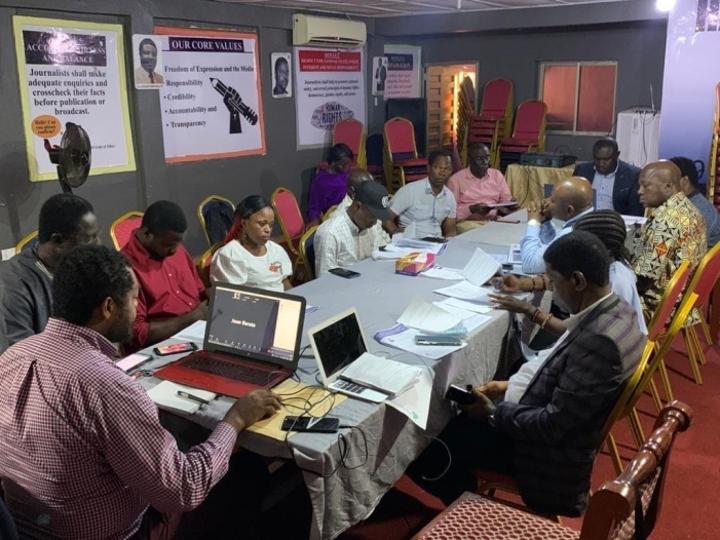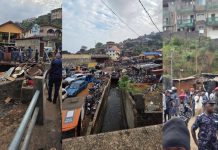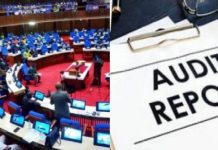Africa-Press – Sierra-Leone. By Amin Kef Sesay
Stakeholders from various sectors, including Civil Society Organizations (CSOs) were engaged by the Sierra Leone Association of Journalists (SLAJ) on discussions about the recently enacted Cybersecurity and Crime Act 2021 under a project titled ‘Cyber Safe Sierra Leone’.
President of SLAJ, Ahmed Sahid Nasralla, in stating the purpose of the engagement said it was convened for stakeholders to look at the Cyber security law again and identify gaps and sections that could be open to abuse of the right to freedom of expression, and to develop strategies for awareness-raising targeting constituent members.
He furthered that in as much as the law is now with us and nothing could be done to change aspects of it, however, as was done during the engagements when the law was at the bill stage, it is but very significant to continue to highlight the gaps and sections in the Act, especially in the area of offences, that could conflict with fundamental human rights including the right to freedom of expression and free speech online.
The SLAJ President said in essence it is for stakeholders to begin to strategize how to influence implementation through awareness-raising and advocacy.
Participants at the one-day workshop held on 8th February 2022 at the SLAJ Hall in Freetown, had the opportunity to listen via zoom to international legal perspective on the Cyber law delivered by legal practitioner Joan Barata.
Joan used to work with several international organizations and NGOs on matters related to freedom of expression, freedom of information, media regulation, the regulation of online platforms, privacy rights, and other internet freedoms issues.
According to Joan, the main reason or the main rationale for the adoption of cyber laws is always to increase the security of online transactions, to avoid fraud, or the malicious use of the internet, etc. Joan said cyber laws, as with the case of Sierra Leone, in many ways have a negative impact on freedom of expression and of the press.
“These laws (cyber laws) also contain restrictions, the formulation of new offences, granting of very intensive and extensive powers to competent authorities to scrutinize speech, to control speech over the networks, and these laws in many, many cases may have negative implications on the right to freedom of expression. And this is the case with the cyber law of Sierra Leone,” said Joan.
The lead facilitator of the workshop, Dr Francis Sowa, did a presentation on the Cyber Crime and Security Act 2021 highlighting key sections in the areas of offences and the regulatory bodies provided for in the Act. In the interactive session, participants noted the exclusion of the media and civil society in the National Cyber security Advisory Council and the fact that the regulatory bodies, which are yet to be established, are dominated by Government officials.
Participants also noted the lack of awareness of the public about the Cyber law and the need for stakeholder groups to embark on the education of their constituent membership on the law.
The SLAJ President said public education on Cyber law is crucial because the implementation of the law has already started, and the national elections during which the cyber law is expected to be effectively used are fast approaching.
Participants agreed on the following next steps: Meanwhile, according to Nasralla, the engagement session is the first of three workshops that would be held for stakeholders to continue to raise awareness about Cyber law and its provisions.
For More News And Analysis About Sierra-Leone Follow Africa-Press






